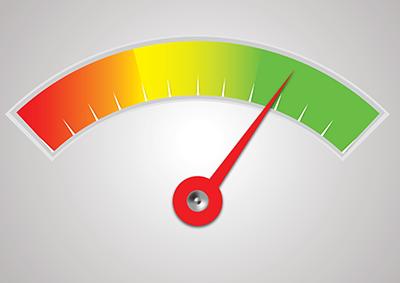Starting therapy, whether you’re new to it or returning after some years off, can be intimidating. There are plenty of counsellors on offer, but how do you know who is right for you? How do you know if someone you’re interested in has the right experience to work with you?
This list of questions is designed to determine if your new therapist is a good fit, and what you can reasonably expect out of the experience.
How do you feel with this person?

Do you feel comfortable talking to your therapist? Follow your instincts about whether this person can help you achieve your aims.
Although it’s easy to walk into a new office and feel utterly blank at the prospect of spilling your secrets to a stranger, remember that counsellors chose their profession for a reason. But not every therapist is going to make you feel at ease and in a safe space to unload.
Some therapists are warm and engaging, others are cold and distant. It’s not a character flaw—professional arrogance can be found in most fields—but if you land in front of someone who is making you feel uncomfortable just by sitting there with their notepad and nodding critically, the relationship is not going to work.
Laying judgment on you is a pretty bad indicator in an opening session—judging your actions is not a therapist’s job. Helping you see the patterns underneath your actions and their effects on your life from a neutral position is within their job description.
Remember that you’re not required in any way to continue with a counsellor after the first session. If your instincts steer you away from this therapist, honour them. But on the other hand, if you visit ten therapists and don’t like any of them, there might be something going on with your thoughts and emotions about beginning therapy that’s actually unrelated to any of the individuals. In that case, it’s a good idea to choose the therapist you reacted the least negatively to and stick it out with them for a while, to uncover why you have an initial aversion to the process.
Does the therapist have experience working with the particular issues for which you are seeking therapy?

Consider whether your therapist has the skills and tools to help you.
Similar to doctors and healers, counsellors develop expertise in particular issues, through study and practice. A good therapist will explain their areas of interest and experience, usually right on their website, and certainly in the first visit. The more work a therapist has put in treating clients with specific traumas and issues, the more likely they’ll know how to help you.
A therapist with experience has built a solid toolkit of skills, keeps up with their training, and consults with their peers on best practices. They’ll teach you exercises and visualizations to change negative behaviours, and help you learn how to calm strong emotions.
If you’re looking for a couple’s therapist, ask if the therapist has specific training in couples work—it’s quite a different skill set than what’s required for individual or group therapy.
Guaranteed or your heartache back…

Be wary of any therapist who offers a guarantee.
Beware of counsellors who make unconditional guarantees of healing. The human psyche is very complex, and though a therapist is right to offer hope for healing and a path towards it, an iron-clad promise is not realistic, nor useful.
Counsellors work with you to unpack layers of protective behaviours you might not even realise you engage in. It can take years to change these habitual patterns, or to recover from trauma. That’s not to say it can’t happen, but therapists aren’t magicians, and what they offer cannot be packaged up with a flashy guarantee. Therapy is different for every person, and can even be different for someone returning to therapy after a break.
What are the counsellor’s core philosophies and methodologies around healing?

It’s wise to ask about their approach to healing – does it gel with yours?
This is an important point, and one you’re right to ask about in an initial session. Does this therapist view humans as basically good and capable of healing and growth, or as unmanageable beings crashing around their lives (and it’s their unfortunate job to listen to them)?
For a deep and productive exchange between two people, particularly when the goal is mental and emotional healing, there must be compassion, and a certain degree of optimism. Therapy can be hard work—does this counsellor even believe people can change their destructive habits? If they don’t, you might as well toss their cheque out the car window.
Does this therapist foster independence or dependence in their clients?

Does your therapist foster dependence or independence – will you need to see them for a short time or the rest of your natural life?
From early on in the therapeutic relationship—sometimes the first visit, sometimes the first few visits—a good counsellor will give you a clear explanation of their approach for your issues, and the modalities they’re going to use. If this counsellor has seen your sort of concerns before, they’ll know how to help early on. They can and will explain how you’ll know when this course of therapy has finished.
Is this therapist licensed?

Does your therapist have the required training and licensing?
This is not a make or break issue, but it’s good to note. Being licensed means the counsellor has extensive experience after university (the requirements vary across countries). They passed a licensing exam, and have had more supervision of their practise than non-licensed therapists. This is not to say they’re automatically better at their jobs, but that they probably went through more rigorous training.
The good news is, when you find a counsellor that is a good fit for you, you’re much more likely to get the results you’re looking for. Just do your due diligence and ask the right questions before choosing your next counsellor to ensure a positive outcome.
About Clinton Power
Clinton Power is a relationship counsellor, individual psychotherapist and the owner of Clinton Power + Associates, a private practice dedicated to helping singles and couples move out of relationship pain. Clinton’s book 31 Days to Build a Better Relationship is available for Kindle on Amazon. Follow Clinton on Twitter or Facebook.


